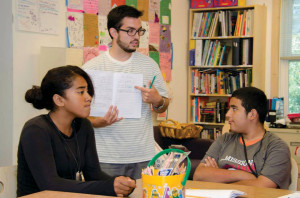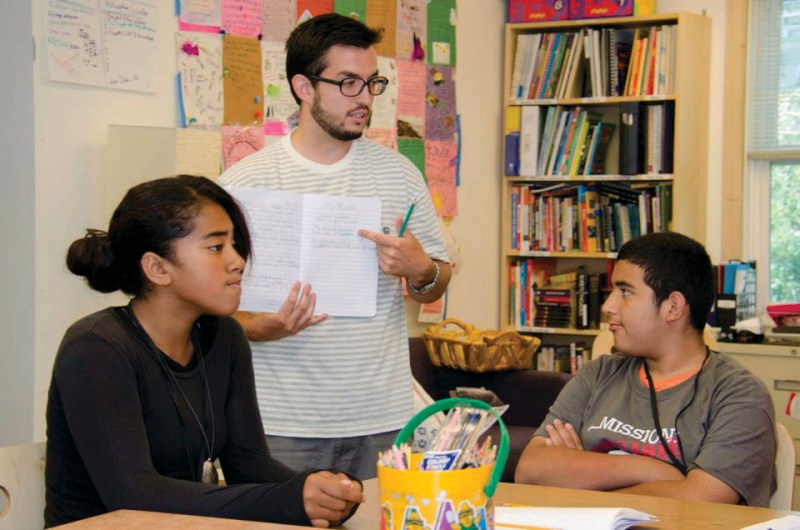The East Palo Alto Stanford Academy (EPASA), a long-standing organization of the Haas Center’s Education Partnerships program, has undergone significant changes since its inception in 1986 with new offerings in store.

Over the past 27 years, EPASA has been pairing Stanford tutors with seventh and eighth-grade students from the Ravenswood City School District to provide weekly tutoring in topics such as math and writing for one to two years.
EPASA Director Theresa Metz said that beyond the academic tutoring, the program fosters more personal relationships with the middle-schoolers and their families. Aiming to maximize the students’ education, the program has also established working relationships with the principals and teachers of the schools the children attend.
These key relationships build the strong “sense of connectedness and community” that Metz sees as a unique quality for the program.
Amika Guillaume, principal of Cesar Chavez & Green Oaks Academy appreciates Stanford’s dedication to the local schools.
“[Workers at EPASA] invest in our students over time,” she said. “We value their partnership.”
During a tutor orientation on Oct. 6, administrators from the Haas Center discussed the objectives of EPASA with tutors volunteering for the program.
EPASA aims to strengthen its focus on community connectedness by developing a greater degree of commitment on the part of Stanford tutors and better communicate what the program’s needs are to those involved.
Co Tran ’17, a freshman tutor for EPASA, said that she was involved because seventh grade was rather a pivotal year for her, especially because she felt people took interest in her academic career. She added that EPASA middle-schoolers are at a time in their lives during which they decide the kind of person they are going to be.
Improvement in EPASA revolves around a core question, according to Metz: How can EPASA provide this opportunity to more people?
EPASA plans to launch a concerted effort to involve Stanford students in activities other than tutoring and mentoring, such as organizing lunch and teaching electives. EPASA will also invite previous tutors to continue building relationships with the EPASA alumni.
The changes in EPASA reflect a wider pattern as the Haas Center’s Education Partnerships programs collectively adjust to changing needs in education.
As STEM fields play increasing roles in society, Metz discussed a growing interest in fields such as computer science, which EPASA now offers electives for.
According to Kelly Beck, director for education partnerships, the staff is very excited about this year’s launch of Preschool Counts, a math literacy program designed for students in early childhood. The Haas Center also offers the Science in Service program, providing youth with what Beck called “hands-on discovery in science.”
According to Metz, the Haas Center’s Education Partnerships’ early programs aim to create a sturdy basis for children on their paths to higher education, and participation in EPASA enables teenager to make smarter choices later on about their academics in high school.
“All our programs are the puzzle pieces that fit together for our efforts in education,” Metz said.
Contact Minkee Sohn at minkees ‘at’ stanford.edu.
